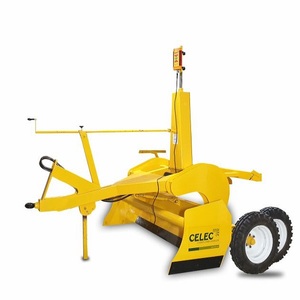Popular in your industry










Related Searches:

























Top categories
About agricultural machinery in punjab
Punjab is a state in India that is known for its vast agricultural landscape and significant contributions to the country's food production. The agricultural sector in Punjab is highly mechanized, with modern technologies and equipment playing a crucial role in enhancing farm productivity and efficiency. Agri machinery Punjab is a comprehensive term that refers to the wide range of agricultural machinery used in the state to carry out various farming operations. These modern agricultural implements and equipment have revolutionized the way farming is done in Punjab, making it a hub for agricultural innovation and progress.
Types of agricultural machinery in Punjab
Agricultural machinery in Punjab comprises different types of machinery, each designed for specific farming tasks. Tractors are the backbone of agricultural operations in Punjab, serving as versatile workhorses for plowing, tilling, seeding, and hauling. Combine harvesters are essential during the harvest season, as they efficiently perform the tasks of cutting, threshing, and cleaning crops like wheat and paddy. The widespread use of these machines has significantly reduced the time and labor required for harvesting, making farm operations more streamlined and cost-effective. Punjab also sees the use of specialized machinery tailored to the region's cropping patterns. For instance, the happy seeder, a direct drill machine, is widely used for sowing wheat into paddy stubbles after the rice harvest.
Benefits of using agricultural machinery in Punjab
The adoption of agricultural machinery in Punjab brings numerous benefits to farmers, contributing to increased efficiency, improved yields, and sustainable farming practices. One of the significant advantages is the enhanced operational efficiency and cost-effectiveness achieved through the use of advanced machinery. By mechanizing tasks that were previously done manually, farmers can save time and labor, allowing them to cover more land and increase productivity. Additionally, the use of agricultural machinery in Punjab helps in achieving timeliness in farm operations. Timely sowing, irrigation, and harvesting are critical for realizing optimal crop yields. With the aid of modern machinery, farmers can adhere to the ideal schedules, ensuring that crops are cultivated and managed at the right stages.
Furthermore, the adoption of agricultural machinery promotes sustainability and conservation of resources. Conservation tillage practices, facilitated by machinery like zero till seed drills, help in minimizing soil erosion and preserving soil health. In the context of Punjab, where water resources are under pressure, the use of precision irrigation systems, such as sprinklers and drip irrigation, enables efficient water management and contributes to water conservation. Another notable benefit is the role of agricultural machinery in supporting diversification and crop rotational practices. The ability to quickly and effectively manage the residue from one crop and prepare the land for the next crop cycle is essential in implementing sustainable agricultural practices.
Challenges associated with agricultural machinery in Punjab
While the adoption of modern agricultural machinery has transformed farming in Punjab, it also presents certain challenges. One of the primary concerns is the high cost of machinery acquisition and maintenance. Despite the potential long-term benefits, the initial investment in purchasing equipment can be a significant financial burden for small and marginal farmers. Additionally, the need for skilled labor and technical know-how for operating and maintaining complex machinery poses a challenge, particularly in regions where traditional farming practices are prevalent.
Another challenge is related to the environmental impact of intensive mechanization. The excessive use of heavy machinery can lead to soil compaction, reducing soil health and fertility over time. Addressing this issue requires a balanced approach that combines the benefits of machinery with sustainable land management practices. Moreover, the dependence on machinery, such as combine harvesters, for specific operations can sometimes lead to over-reliance on a single technology. This can pose risks in situations where machinery breakdowns or shortages occur, highlighting the importance of diversification and backup plans in agricultural mechanization strategies.




























